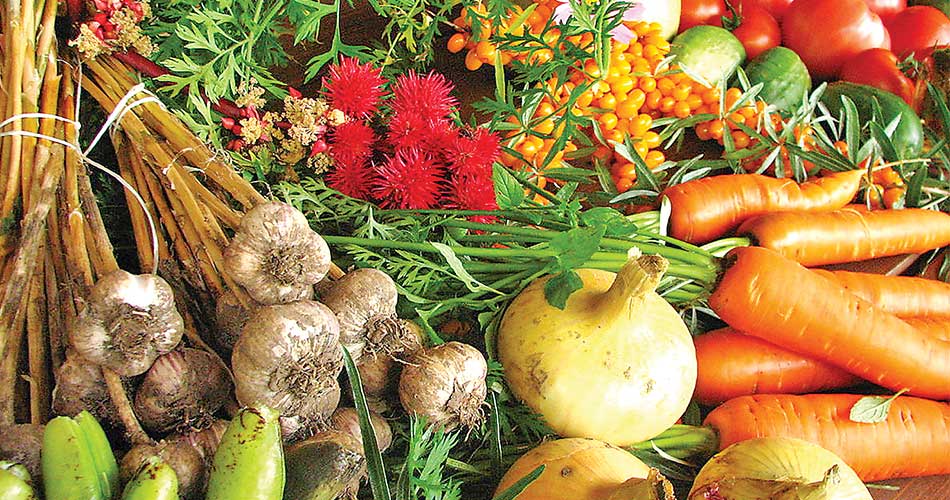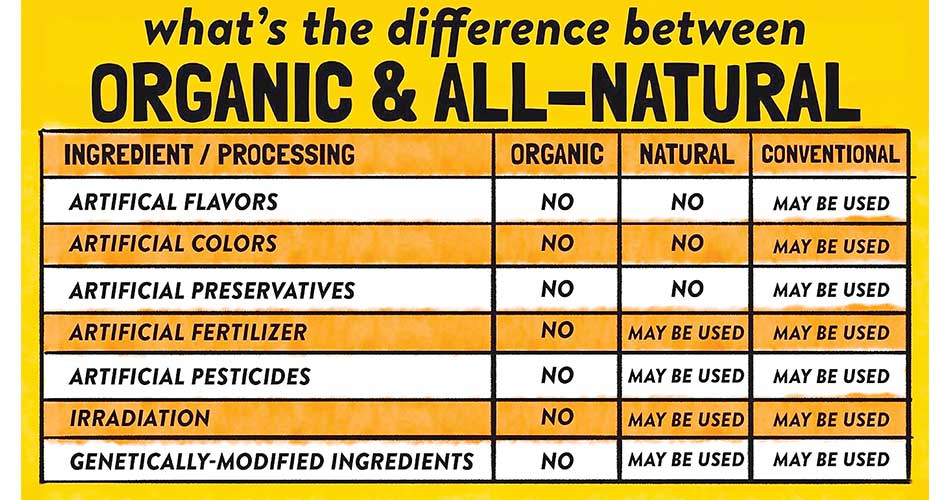Salt therapy – All you need to know
- 24 Feb - 01 Mar, 2024
For quite some time there has been an explosion of health food products on the market, specifically advertised as either organic foods or natural foods. Most people don't know that there is a major difference between organic and natural foods, believing that the two are interchangeable. This article will help you understand exactly what the difference is between these two designations.

There is a huge difference between a food labeled "natural" and one that is labeled "organic." Unfortunately these two titles get tossed around a lot, to the point where no one seems to be able to determine which is which, creating a lot of confusion for people who are truly concerned with purchasing the best and healthiest products available.
Some of the choices we can make for the better are more intuitive than others. As in the example above, we can easily differentiate in the quality of producing ketchup versus a tomato. Tomatoes are a natural food and, when consumed fresh, are nutritious for our health and better for the environment. Taking this reasoning one step further, we can differentiate between the natural tomato that has most probably been grown in mass scale farms, with the use of synthetic fertilisers and pesticides that have been introduced as a crutch to support the ever increasing demand of consumers. While a conventionally grown tomato is a natural food, the practices involved in its production have stripped the soil’s natural ability to replenish itself, making it dependent on synthetic chemicals that often times have negative effects on the wildlife surrounding such farms, the soil bio-flora and the health of those involved in the farming process and consumption.
Organically grown produce stand out by the purity of the production process every step of the way, with minimal intervention. This involves, among other things, allowing the soil to regenerate with time and through natural processes (natural fertilisers), avoiding harsh synthetic pesticides, responsible use of water sources and instead allowing nature to take its own course, enabling a symphony of intertwined natural processes. Pests are kept under control by encouraging natural predators to reach them or using natural plant-based deterrents to their multiplication. Mono-cultured farming, while more profitable and easier to manage, does not occur naturally and so many organic farms learn from nature’s blueprints and try to implement permaculture practices that sustain biodiversity.
What we, as consumers, need to understand is that such practices take more time, dedication, and investment while resulting in goods that may look or feel different from the conventionally marketed perfectly shaped, spotless produce we see in supermarkets. Organic produce is also kept pure after the harvesting stage, without the addition of enhancers and additives that only add superficial, aesthetic or profit based value to the product itself.
Out of respect and gratitude for the efforts made by organic farmers and producers which benefit not only our health but preserve the health and safety of our environment, we should consider putting locally produced organic products at the top of our list for any purchase. •
– Contributions from Mrs. Haider
Chemicals such as fungicides, herbicides, and insecticides are widely used in conventional agriculture and residues remain on (and in) the food we eat.
Organic food is fresher because it doesn’t contain preservatives that make it last longer. Organic produce is often (but not always, so watch where it is from) produced on smaller farms near where it is sold.

Organic farming practices reduce pollution, conserve water, reduce soil erosion, increase soil fertility, and use less energy. Farming without pesticides is also better for nearby birds and animals as well as people who live close to farms.
Organically raised animals are not given antibiotics, growth hormones, or fed animal byproducts. Feeding livestock animal byproducts increases the risk of mad cow disease (BSE) and the use of antibiotics can create antibiotic-resistant strains of bacteria. Organically-raised animals are given more space to move around and access to the outdoors which keeps them healthy.
Results of a 2016 European study show that levels of certain nutrients, including omega-3 fatty acids, were up to 50 per cent higher in organic meat and milk than in conventionally raised versions.
Genetically Modified Organisms (GMOs) or genetically engineered (GE) foods are plants whose DNA has been altered in ways that cannot occur in nature or in traditional crossbreeding, most commonly in order to be resistant to pesticides or produce an insecticide. Organic food is free from any such thing.
COMMENTS